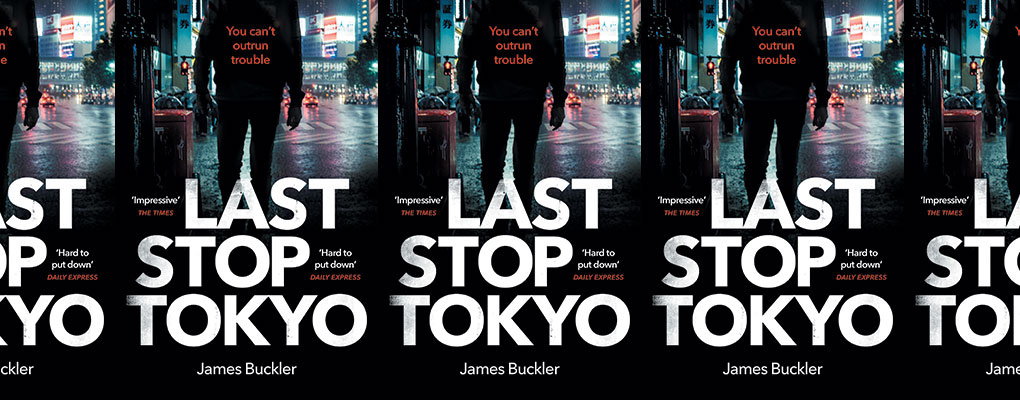Books
Dear Reader: a letter from James Buckler
Dear Reader,
Last Stop Tokyo is my first novel. The idea came to me when I was working as an English teacher in Tokyo, in the Shinjuku district in the heart of the city. Before I moved there, I knew nothing about Japan. I had never visited the country and had never thought of living there. In fact, it wasn’t really a conscious decision to live in Tokyo; it was more the result of a series of rash decisions which took me from London to the US, to Canada, and finally to Japan.
On touch-down, I was instantly mesmerised by the country and the culture; the vastness of Tokyo, the crazy mixture of ancient and modern architecture, the relentless 24-hour pace of life which made you want to sleep as little as possible in case you missed something. It was all intoxicating from the start. During the day, I wore a sober suit and tie and taught grammar lessons to a classroom of polite, shy, adult students. But at night I explored every side street and hidden corner I could find. I was fascinated by the constant hustle of the city and the inescapable sense of mystery and imminent danger. There were 30 million people living there, all strangers. I knew no one and I had never been happier. I was determined to write about it. But first, I needed a story.
The language school I taught at had previously been a traditional Japanese restaurant and the smell of seafood and sesame oil lingered in my classroom. Throughout the day, an endless procession of traffic raced by my window and the whole building shook as the express trains rumbled overhead on the elevated tracks. I had a student, a retired financier in his seventies who paid for a two-hour private lesson each week. He spoke perfect English that needed no improvement but desperately wanted to have someone to talk to apart from his wife. He would ask me, with intense sincerity, to explain the rules of polo or how to knot an Ascot tie. When I laughed and told him I had no idea, he would purse his lips and frown suspiciously as if I was somehow masquerading as an Englishman.
One of his favourite ways to find a topic for discussion was to bring in the local English language newspaper that was printed for Tokyo’s expat community. He would flick through the pages and find a suitable article – often a piece about currency fluctuations or international conflicts – and we would spend two hours debating the finer points of the story. One day, he found an article about a visiting English businessman who had been arrested on suspicion of a minor theft. He had been held in custody for ten days without charge or access to legal advice while he protested his innocence to the police. I was surprised and told my student how this would be an abuse of power in the UK. He shrugged and told me it was perfectly normal in Japan, that the authorities had the right to hold anyone in custody for up to twenty-one days while they investigated a suspected crime. He told me that this system, daiyo kangoku or substitute prison, almost always resulted in the suspect’s confession, as it had done in this case. I suggested that perhaps the suspect had confessed because of the long period of custody; that to achieve a quick release, any normal person would be tempted to plead guilty and pay a fine just to go free. I asked him to consider not just how unjust that situation would be for a Japanese citizen, but how daunting that would be to a foreigner, a gaijin, either visiting or living in Tokyo.
As I spoke, the flash of inspiration I experienced was like something from a comic book. A technicolour bomb exploded in my imagination which tied together all the things about Tokyo I found exciting: the dramatic difference in culture, the vast range of possibilities in the city; its alien strangeness to Western eyes; its dark, seedy underbelly and sense of danger.
I imagined the jeopardy of being mistakenly locked up for a crime you hadn’t committed in a country where even buying a cup of coffee was fraught with tension and misunderstanding. The experience would be overwhelming. I knew I had the foundation of my story. I took the train home that night and began writing.
James Buckler



Please note: Moderation is enabled and may delay your comment being posted. There is no need to resubmit your comment. By posting a comment you are agreeing to the website Terms of Use.